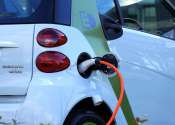iPhone 5 not just a phone; it's a stimulus too
Apple's iPhone 5 is one of the biggest product launches ever in the sector, and may also deliver a well-timed stimulus to the US economy ahead of the presidential election, analysts say.

Apple's iPhone 5 is one of the biggest product launches ever in the sector, and may also deliver a well-timed stimulus to the US economy ahead of the presidential election, analysts say.
Business
Sep 15, 2012
30
0

Lower rates of asthma and other health problems are frequently cited as benefits of policies aimed at cutting carbon emissions from sources like power plants and vehicles, because these policies also lead to reductions in ...
Environment
Aug 24, 2014
5
0

Godzilla first made his debut in 1954. At inception, he was a 50-meter tall metaphor for indiscriminate destruction, particularly U.S. hydrogen-bomb testing in the Marshall Islands, which, in the film, destroyed Godzilla's ...
Social Sciences
May 30, 2019
0
766

Purdue Pharma is inextricably linked with the opioid crisis.
Economics & Business
Oct 9, 2023
0
14

U.S. roads and bridges are in abysmal shape – and that was before the recent winter storms made things even worse.
Energy & Green Tech
Feb 25, 2019
8
126

The world has been experiencing an unprecedented economic downturn due to the COVID-19 pandemic. A significant number of economic activities have shut down, causing contractions in global output, as well as the loss of businesses ...
Economics & Business
May 29, 2020
0
3

The United States' ability to compete globally in science and technology is on a "perilous path," said a new report delivered Sept. 23 on Capitol Hill to a bipartisan group of policymakers, industry leaders, and academics.
Economics & Business
Sep 24, 2010
75
0
Fossil fuel companies have been funding smear campaigns that raise doubts about climate change, writes John Sauven in the latest issue of Index on Censorship magazine.
Environment
Jul 4, 2013
207
0
Automatic spending cuts have hit America's science and research sectors especially hard, according to experts, who warn of potentially dire implications for the nation's overall competitiveness.
Other
Apr 5, 2013
48
0

Is military spending good for economic growth? According to some studies, the answer is affirmative. Military spending boosts business confidence, particularly in conflicting countries, which facilitates physical investment ...
Economics & Business
Jul 7, 2017
3
13
Consumption is a common concept in economics, and gives rise to derived concepts such as consumer debt. Generally consumption is defined by opposition to production. But the precise definition can vary because different schools of economists define production quite differently. According to some economists, only the final purchase of goods and services constitutes consumption, and every other commercial activity is some form of production. Other economists define consumption much more broadly, as the aggregate of all economic activity that does not entail the design, production and marketing of goods and services (e.g. "the selection, adoption, use, disposal and recycling of goods and services").
Likewise, consumption can be measured by a variety of different metrics such as energy in energy economics . The total consumer spending in an economy is generally calculated using the consumption function, a metric devised by John Maynard Keynes, which simply takes the aggregate disposable income and multiplies it by a "marginal propensity to consume". This metric essentially defines consumption as the part of disposable income that does not go into savings. But disposable income in turn can be defined in a number of ways - e.g. to include borrowed funds or expenditures from savings.
This text uses material from Wikipedia, licensed under CC BY-SA